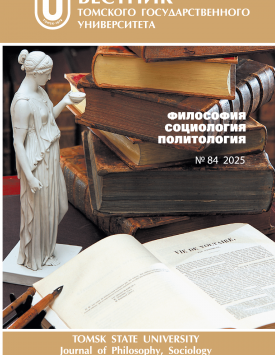Laurence BonJours’s coherentism, John Pollock’s challenge, and causal-doxastic epistemic basing relation
The article aims to show that Laurence BonJour’s concept of coherentistic justification of empirical knowledge can be reconciled with the concept of causal-doxastic epistemic basing relation (K. Korcz, D. Mittag, R. Neta, et al.). This will allow responding to John Pollock’s claim that “any holistic coherentist theory cannot distinguish between justified and justifiable beliefs”. The main emphasis is placed on the explication of the doxastic component in the proposed interpretation of the basing relation. As one of the variants of explanatory meta-belief, which will be a part of a corresponding sufficient condition for establishing the desired basing relation, a conditional “narrative” is considered that reveals the idea of a current belief s belonging to a given coherent set of beliefs within the framework of BonJour’s theory. Given the limitations inherent in BonJour’s theory, such as the notion that observational beliefs with which all the other beliefs of a system must be coherent will be epistemically justified only in the presence of, and by virtue of, accompanying background empirical knowledge in the relevant contexts specified by other beliefs, or that a belief system must have a sufficient degree of coherence, greater than the degree of coherence of any alternative system; and the decision which one to accept will depend on the practical situation, and not on reasoning about the “level” of coherence, or that the relation of epistemic priority between individual beliefs depends on the question which particular belief or set of beliefs will be analyzed; and would be solved in each particular case, and others, - the essentially empirical question of the difference between “justified” and “justifiable” empirical, and therefore contingent, beliefs is guaranteed to have an answer in each particular case; and that answer will be interpreted at least as a part of sufficient conditions for justification. The author declares no conflicts of interests.
Keywords
Laurence Bonjour, coherentism, basing relation, John Pollock, justificationAuthors
| Name | Organization | |
| Golovko Nikita V. | Novosibirsk State University; Institute of Philosophy and Law, SB RAS | golovko@philosophy.nsc.ru |
References

Laurence BonJours’s coherentism, John Pollock’s challenge, and causal-doxastic epistemic basing relation | Tomsk State University Journal of Philosophy, Sociology and Political Science. 2025. № 84. DOI: 10.17223/1998863X/84/7
